|
The Iowa State University Extension and Outreach dairy team will continue its dairy goat webinar series in 2023 with all webinar dates and topics listed below. All webinars will be from noon to 1:15 p.m., and are free to attend.
Webinar Dates and Topics
There is no fee to attend the program; however, registration is required. This work is supported by the USDA National Institute of Food and Agriculture, Agricultural and Food Research Initiative Competitive Program, Antimicrobial Resistance number: 2020-04197. Register in advance for this meeting at https://go.iastate.edu/2023DAIRYGOATWEBINARS or contact Jennifer Bentley, dairy specialist with ISU Extension and Outreach, at [email protected], 563-382-2949. Registrants will receive a confirmation email containing information about joining the meeting. As dates and topics are announced, information will also be provided about future webinars. Jennifer Bentley ISU Extension and Outreach Dairy Field Specialist 2316 Sweet Parkway Road Decorah, IA 52101 [email protected] Office: 563-382-2949 Dairy News and Views from ISU Podcast www.extension.iastate.edu/dairytea
1 Comment
College of Veterinary Medicine Small Ruminant Program Iowa State University, Extension & Outreach, Dairy Team Dairy Goat Management channel Dairy Goat Housing, Ventilation and Milking Systems
Join Iowa State University Extension and Outreach Dairy Team as Field Ag Engineer, Brian Dougherty and Extension Dairy Specialist, Larry Tranel, provide information on dairy goat housing, ventilation, and milking systems. CAE and what you need to know!
Join Dr. Paul Plummer, Iowa State University, College of Veterinary Medicine, and Executive Director of National Institute of Antimicrobial Resistance Research and Education, as he discusses what CAE (Caprine Arthritis Encephalitis) is and practical ways to manage the spread of CAE in your herd. February 2 at 7 pm, 2022, NC State Sheep and Goat Extension, USA
This webinar will explore the importance of record keeping and recording keeping systems for small ruminants. Join the North Carolina Cooperative Extension Small Ruminant Team and Rafael Bravo, sheep producer in Polk county, to discuss the importance of record keeping on small ruminant operations and practical ways to implement record keeping systems. Learn how records can be used to identify strengths and weaknesses in a flock, establish goals and priorities, and make management decisions. 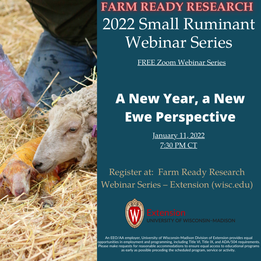 Farm Ready Research is Extension’s agriculture winter webinar meeting series for farmers and ag professionals. Learn the most up-to-date information on topics from dairy and livestock production to forage and farm management. Tuesday, January 11, 7:30-8:30pm A new year, a new ewe perspective Todd Taylor, the University of Wisconsin-Madison Sheep Research Program Manager for the Arlington Agricultural Research Station Sheep Unit, will discuss the most complex sheep on the farm, the ewe. As the ewe moves through the production cycle, her needs change. Join Todd as he covers productive ewe management during a typical year to maintain her useful contribution as part of the flock for many years. Tuesday, February 8, 7:30-8:30pm Strategic and cost-effective mineral nutrition in sheep Dr. Whit Stewart, Assistant Professor and Extension Sheep Specialist for the University of Wyoming, will discuss the factors that help producers achieve more returns from their mineral nutrition program. Accounting for seasonal changes in mineral content of basal diets, changes in requirements across stages of production (maintenance to lactation), and breed differences in mineral requirements can help us fine-tune the money spent on a mineral program. Additional management factors such as reducing variable consumption and using soil geochemistry in your region to help overcome deficiencies will also be discussed. Time for questions and answers will be provided. from the American Consortium for Small Ruminant Parasite Control 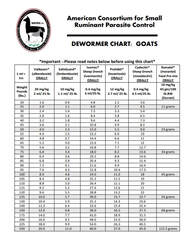 Drug resistance to multiple drugs and sometimes to all available drugs in parasites of goats is extremely common. In order to deliver effective treatments to their animals, it is recommended that producers learn which dewormers still work on their farms by doing fecal egg count reduction tests (FECRT, comparing before and after fecal egg counts) or having a DrenchRite® larval development assay (LDA) done. Several land grant universities now offer low cost ($5/sample) fecal egg counting for this purpose. For more information, go to https://www.wormx.info/lowcostfec. For information about the cost and availability of the DrenchRite test, send an email to [email protected]. To improve the effectiveness of deworming treatments, it is now recommended that goats be given combination treatments. A combination treatment is when you give drugs from different classes to the same animal at the same time. It is important not to mix the different drugs together as they are not chemically compatible. They should be given separately, but can all be given at the same time, one right after the other. It is always recommended to treat goats selectively given their individual need for treatment based on FAMACHA© score and/or the Five Point Check©. Sometimes performance (ADG, milk production, litter size) is used as a criterion for deworming. This recommendation is even more important when using drugs in combination. If all animals in the herd are treated, resistance to the dewormers will develop rapidly, and if using a combination, there will be nothing left to use when this happens. Go to wormx.info for more information on drug choice and drug resistance. This chart was originally developed by Ray M. Kaplan, DVM, PhD, DACVM, DEVPC (University of Georgia) with subsequent contributions by Patty Scharko DVM, MPH (Clemson University). It was last updated October 2021 by Michael Pesato DVM DABVP (Mississippi State University). American Institute for Goat Research (AIGR), Langston University, held the Annual Goat and Hair Sheep Field Day in May. The AIGR hoped that Field Day would resume as usual in 2021. however, due to lingering and even spiking COVID 19 infections in Oklahoma and because of the slow pace of vaccinations in early 2021, the 2021 Goat and Hair Sheep Field Day was not held in person but held virtually via Zoom. The theme was “Goat and Lamb Cookery & More” and took place in smaller 2-to-4-hour segments spread over several weeks. Among the sessions, the two most popular workshops entitled “Internal Parasites and FAMACHA training in Small Ruminants” and “Goat Nutrition and LINC” were recorded and uploaded to the Langston University Ag YouTube channel http://www.youtube.com/user/taglu01.
Among those who attended the parasite workshop, more than 20 people worldwide received a FAMACHA certificate and a FAMACHA card. If you are interested in being certified, you can still do it by fulfilling the following requirements.
Among the workshop videos, the “Primer on Parasites” has been highlighted in Sheep & Goat magazine’s (www.ranchmagazine.com) in June 2021 issue (Volume 29, No.5). 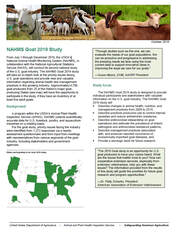 Download Download The National Animal Health Monitoring System (NAHMS), a nonregulatory unit of USDA-APHIS-VS, is developing its Goat 2019 study. NAHMS recently conducted a brief on-line survey and greatly appreciates the input from those who completed the survey. NAHMS conducted the survey to:
NAHMS will use survey results to develop the information objectives that will shape the NAHMS study. Job Description:
The Department of Animal and Dairy Sciences is seeking an Assistant Extension Professor for a 12-month tenure track (60% extension/40% Research) position to develop a swine management extension program and a research program that emphasizes swine growth and development and/or fresh or processed pork production. The Animal and Dairy Sciences Department currently houses approximately 380 undergraduate students, 20 graduate students, and 22 faculty, both on campus at research and extension centers throughout Mississippi. The Department conducts teaching, research and extension activities on the 1200 acre south farm which includes a small research swineherd and research pens for over 150 animals. Also, proximity to commercial swine facilities in the Southeast will increase research and extension opportunities for the successful candidate. The Department began operations on a new 15,000 ft2 Meat Science and Muscle Laboratory in July of 2018 and will move into a new 38,000 ft2 Animal and Dairy Sciences Building in June of 2019. The Department offers Bachelors of Science degrees with concentrations in Pre-Vet Science/Science, Animal Production, and Business and Industry. Both M.S. and Ph.D. degrees are offered from within the College of Agriculture and Life Sciences in Animal and Dairy Sciences. Job Description:
The Department of Animal and Dairy Sciences is seeking an Assistant Extension Professor for a 12-month tenure track (60% Extension/40% Research) position to coordinate statewide Sustainable Agriculture Research and Education (SARE) programs as well as develop extension and research programs in small ruminant health, reproduction or management. The Animal and Dairy Sciences Department currently houses approximately 380 undergraduate students, 25 graduate students and 22 faculty, both on campus and at research and extension centers throughout Mississippi. The Department conducts teaching, research and extension activities on the 1200 acre south farm that includes a research sheep herd. The Department began operations on a new 15,000 ft2 Meat Science and Muscle Laboratory in July of 2018 and will move into a new 38,000 ft2 Animal and Dairy Sciences Building in June of 2019. The Department offers Bachelors of Science degrees with concentrations in Pre-Vet/Science, Animal Production, and Business and Industry. Both M.S. and Ph.D. degrees are offered from within the College of Agriculture and Life Sciences in Animal and Dairy Sciences.
|
IGA Blog
The International Goat Association promotes goat research and development for the benefit of humankind, to alleviate poverty, to promote prosperity and to improve the quality of life. Archives
May 2024
Categories
All
|
|
International Goat Association
2516 Millbrook Rd., Little Rock, AR72227 USA email: [email protected] -454-1641 |
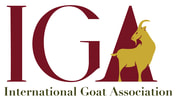

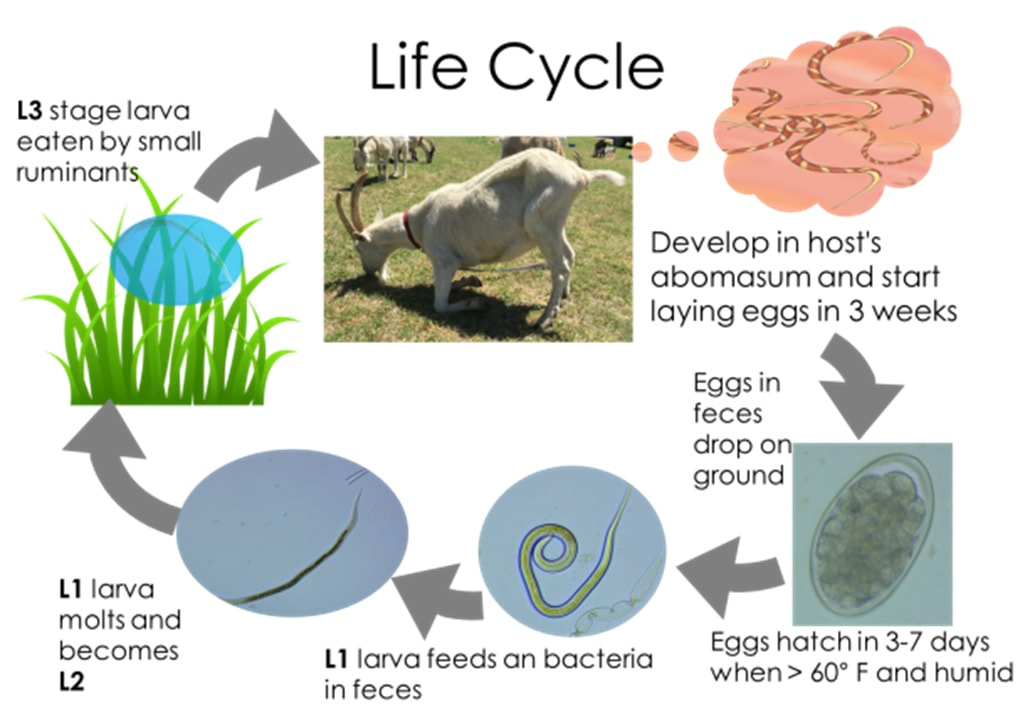
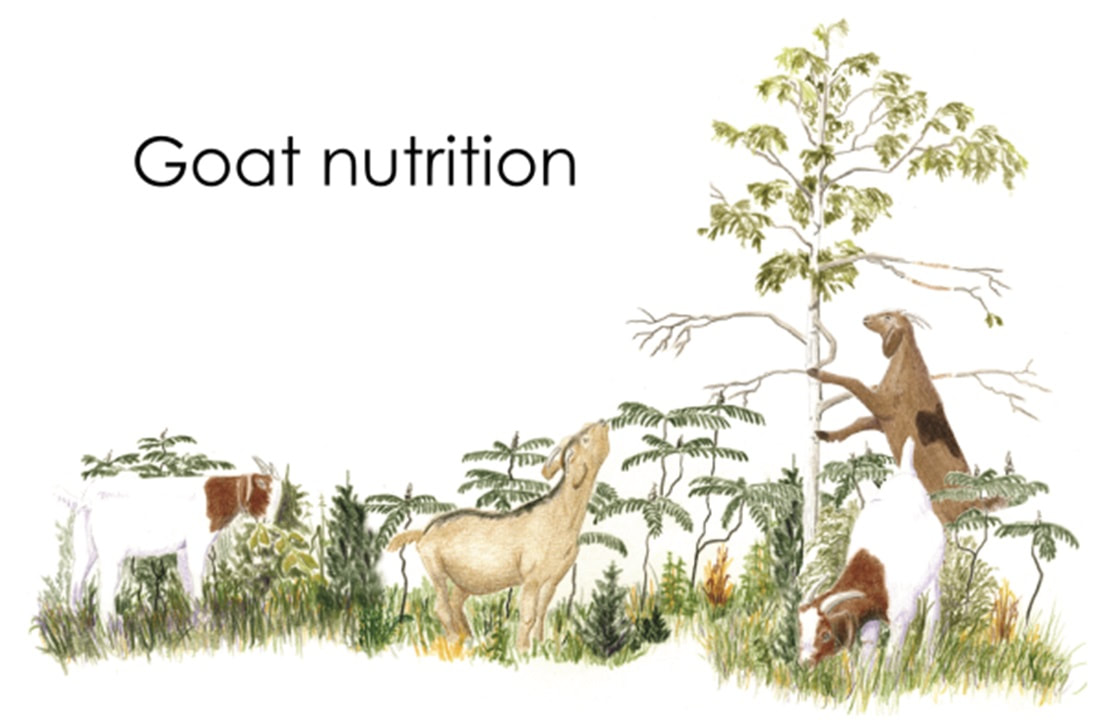
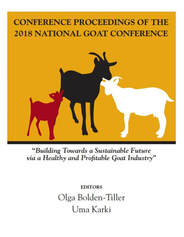
 RSS Feed
RSS Feed